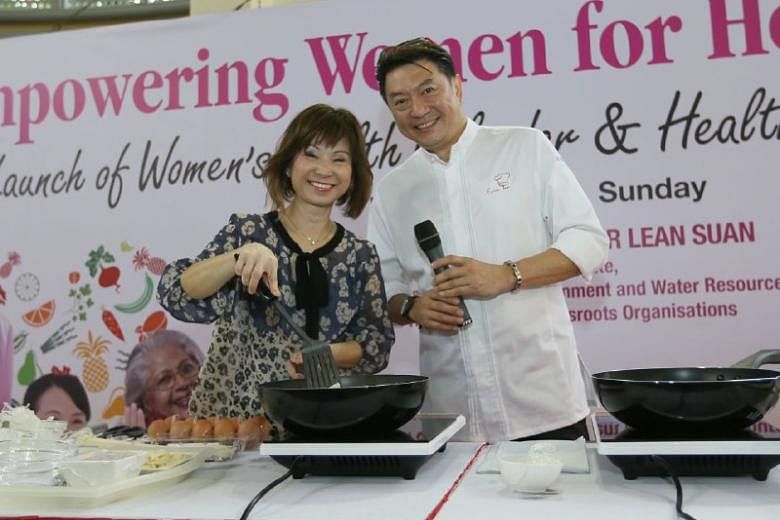SINGAPORE - About 2.5kg of food waste is thrown away by an average Singapore home each week, and this makes uphalf of all waste the home disposes, a National Environment Agency (NEA) study released on Sunday (Dec 3) showed.
More than half the food wasted could be avoided through people not buying, ordering or cooking excessively, with rice, noodles and bread forming the most commonly wasted food items, said the five-month study involving 443 homes.
The findings underscore the fact that the amount of food waste generated in Singapore has increased by about 40 per cent over the last 10 years, with the amount last year (2016) - 791,000 tonnes - equivalent to the weight of more than 3,500 MRT trains.
At a grassroots event at Hong Kah Community Club on Sunday, Senior Minister of State for Health, and the Environment and Water Resources Amy Khor said a more affluent society and a wider range of food choices were possible reasons for this increase.
People in 443 homes took part in the household waste study from November 2016 to March 2017.
Waste samples were collected from 279 of these homes over three days a week to determine the proportion that was avoidable, versus waste not intended for human consumption, such as egg shells and bones. The other homes had interviews done.
The survey showed that 27 per cent of the homes had leftovers after a meal at least half the time, while 24 per cent often threw away spoilt or expired food, mainly because the respondentsbought too much, and they were not aware of food items hidden at the back of the fridge.
Dr Khor agreed with the agency's appeal for businesses to take on a greater role to reduce food waste.
About 54 per cent of the study's respondents also agreed, suggesting that food be packed in smaller portions at supermarkets, and having food outlets offer different food portions.
To avoid having to throw away food turned bad, Ms Gladys Wong, chief dietitian and senior manager of nutrition and dietetics at Khoo Teck Puat Hospital, advised people to refrigerate most raw foods not consumed within three or four days, given Singapore's warm temperature.
"If possible, store foods whole. Cut or peel only before eating or cooking as the cut surfaces of the foods when exposed to air can result in some nutrient loss," she said.
At Singapore's current rate of waste disposal, a new waste-to-energy plant needs to be built every seven to 10 years, while a new landfill would be needed every 35 years.
This is not sustainable given Singapore's land scarcity, said the NEA statement on the study results.


